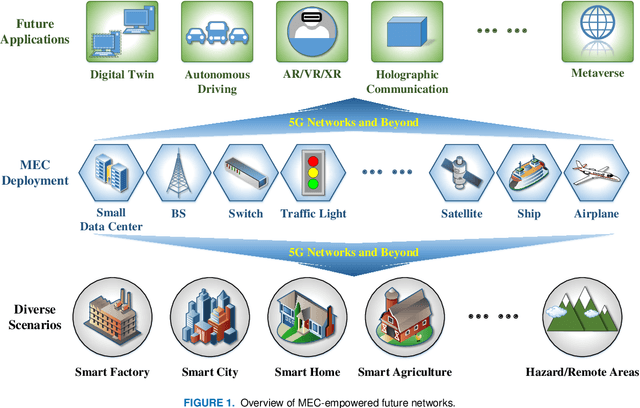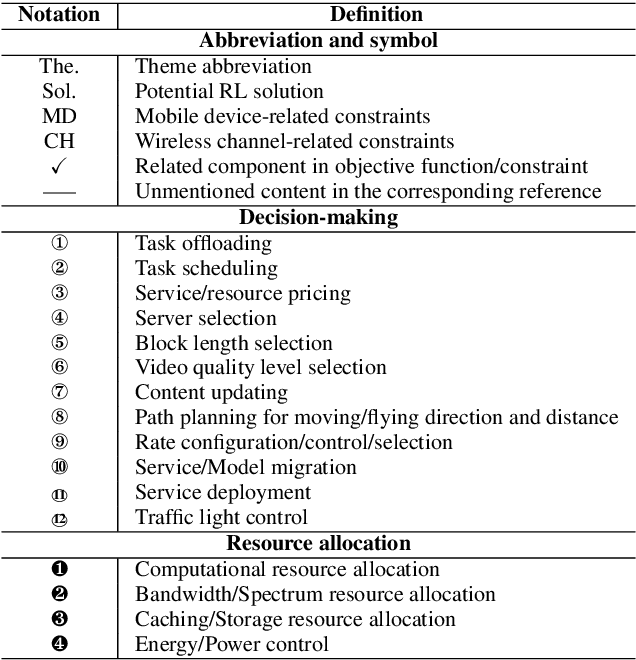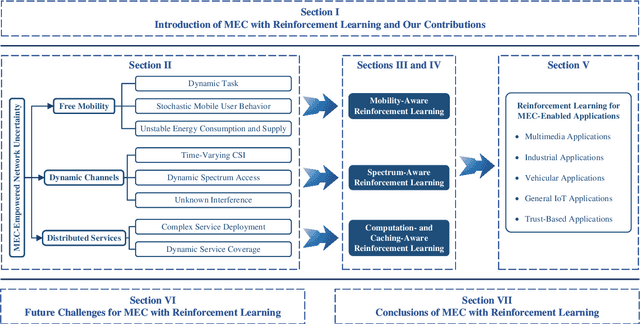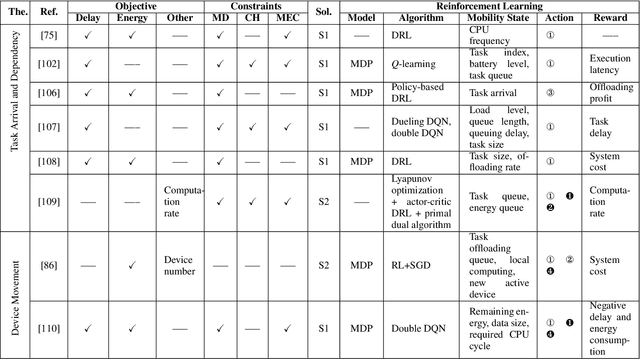Reinforcement Learning-Empowered Mobile Edge Computing for 6G Edge Intelligence
Paper and Code
Feb 03, 2022



Mobile edge computing (MEC) is considered a novel paradigm for computation-intensive and delay-sensitive tasks in fifth generation (5G) networks and beyond. However, its uncertainty, referred to as dynamic and randomness, from the mobile device, wireless channel, and edge network sides, results in high-dimensional, nonconvex, nonlinear, and NP-hard optimization problems. Thanks to the evolved reinforcement learning (RL), upon iteratively interacting with the dynamic and random environment, its trained agent can intelligently obtain the optimal policy in MEC. Furthermore, its evolved versions, such as deep RL (DRL), can achieve higher convergence speed efficiency and learning accuracy based on the parametric approximation for the large-scale state-action space. This paper provides a comprehensive research review on RL-enabled MEC and offers insight for development in this area. More importantly, associated with free mobility, dynamic channels, and distributed services, the MEC challenges that can be solved by different kinds of RL algorithms are identified, followed by how they can be solved by RL solutions in diverse mobile applications. Finally, the open challenges are discussed to provide helpful guidance for future research in RL training and learning MEC.
 Add to Chrome
Add to Chrome Add to Firefox
Add to Firefox Add to Edge
Add to Edge